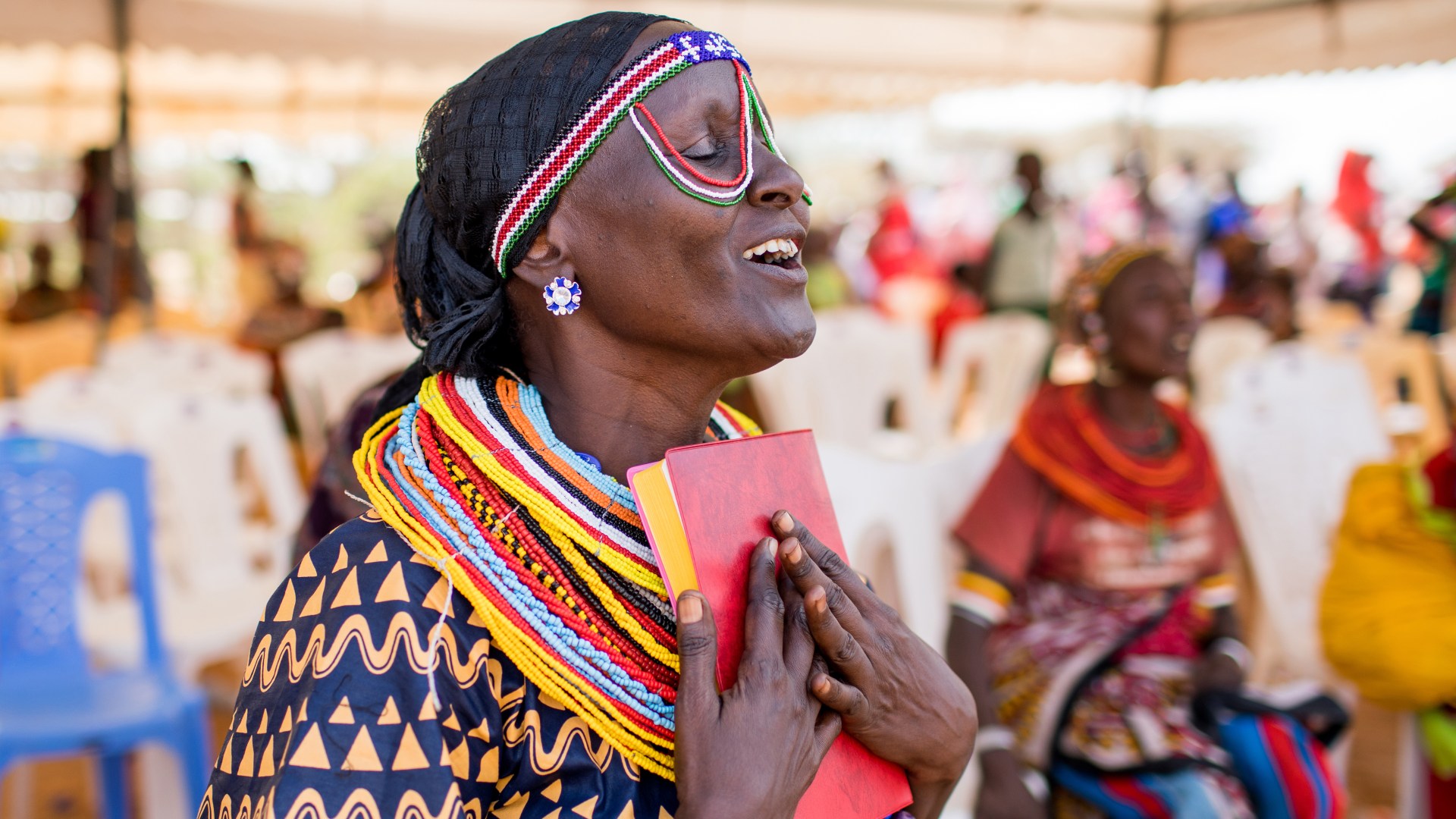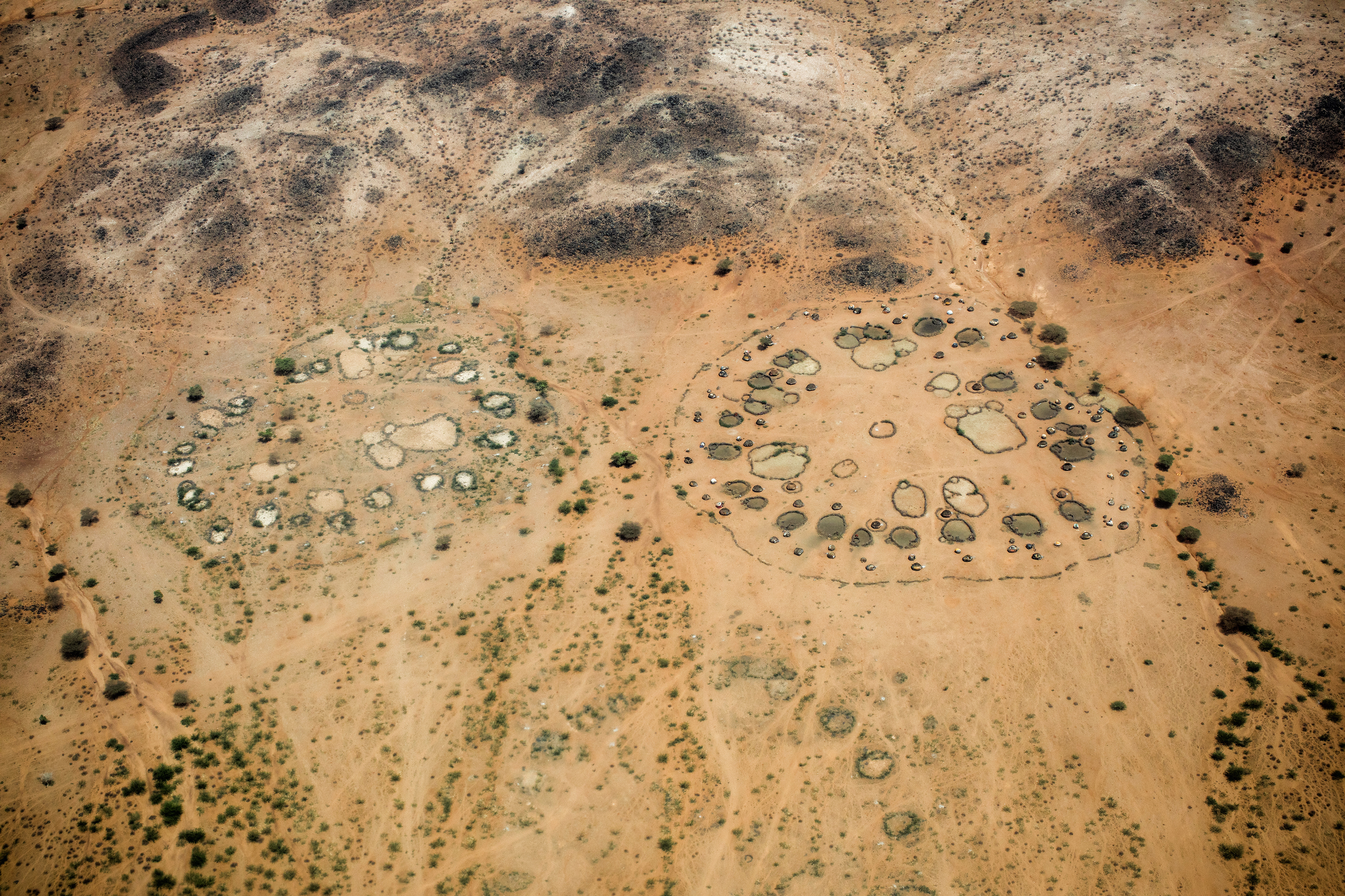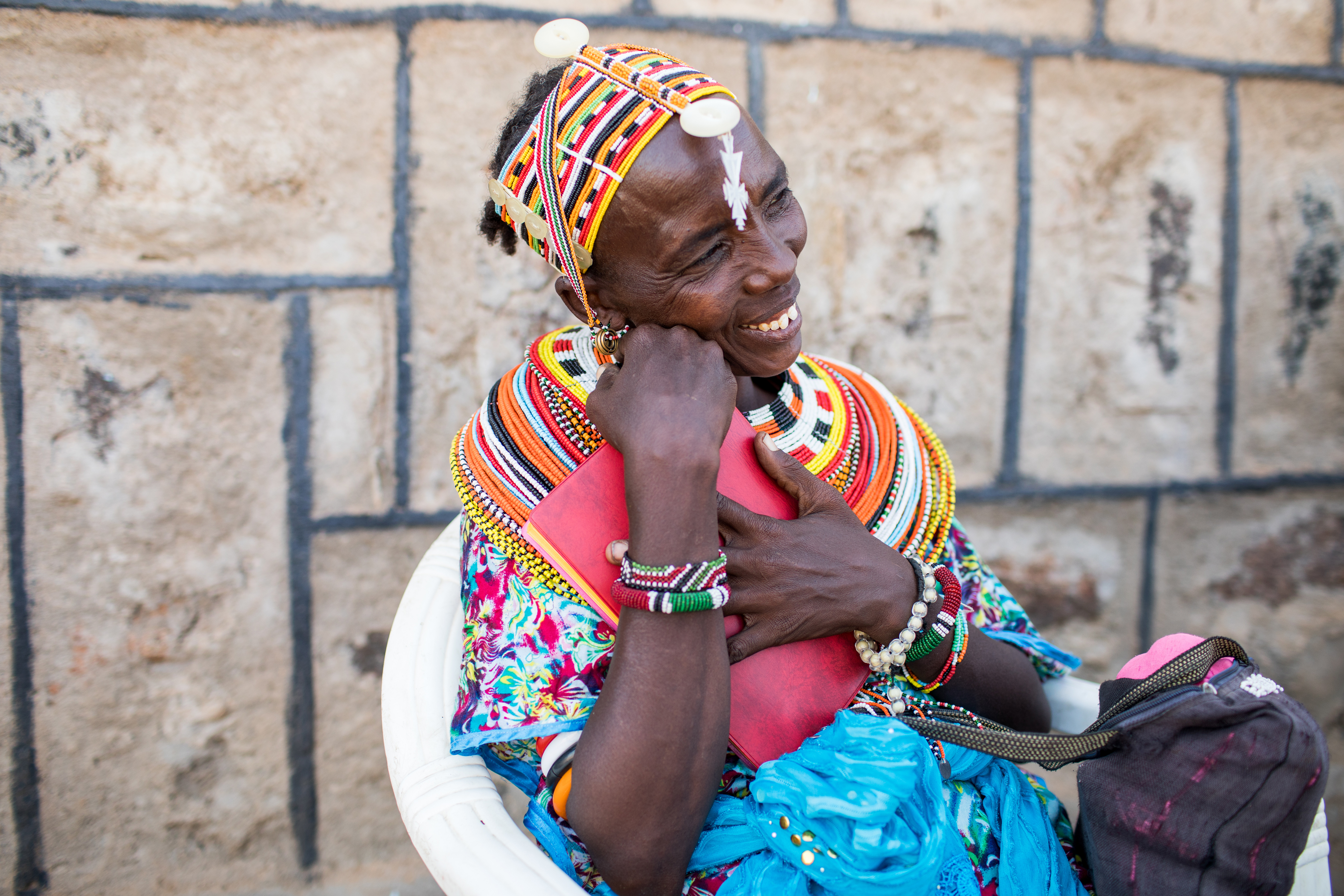The word of God comes riding in on a camel. It’s a kind of modern-day Palm Sunday in Northern Kenya, the nomadic Rendille people waving their worn sticks instead of palm branches, the Word of God itself stacked in bound cardboard boxes, lashed to the hump of a swaying dromedary.
More than a thousand Rendille and dozens of distant neighboring tribespeople have gathered in the stifling heat, with ready smiles and raised hands, to greet the completed New Testament in their own mother tongue. They have been parched for living water under the desert sun for decades—centuries—and this day is nothing short of a resurrection coming. Dancing women stir the dust with their feet, thousands of beaded necklaces rattling like rising bones, and they point out how even the Word-carrying camel can’t seem to stop grinning.
The Rendille translation is one of more than 120 nearing completion in Africa alone in 2018. Over three decades ago, two faithful missionaries and two deeply committed Rendille tribesmen began laying the foundation for this day when they set out to translate parts of both Testaments into the Rendille language. Their painstaking work finally came to fruition in the last three years, thanks to technology and consulting methods beyond those early missionaries’ wildest imaginings and to partnerships between groups including Wycliffe, Seed Company, BTL Kenya, and Africa Inland Mission.
Which is what makes today, the day the Good Book comes, seem like a divine visitation.
Pastor David Gargule, a native Rendille who holds master’s degrees in theology and in organizational leadership and management, has returned here to the desert, because what would it be to find success in the world if his own people were lost? When he was six years old, he remembers watching his mother throw stones at the Bible translators to drive them away.
But it was Bible translators, Gargule posits, who brought community development. Who empowered the Rendille to run adult literacy programs, to offer elementary and secondary education for generations of nomadic children, to sink wells and plant churches for nomadic herdsmen and stand up an emergency response system.
“The Bible is the foundation,” Gargule tells me. “How can we give a Christian education if we don’t have a Bible available? We are not only here to give physical water. How can we give spiritual water?”
He leans forward so the paradigm shift catalyzed by the gospel can’t be missed: “No child marriages. No female circumcisions. Give every child equal rights. Give a girl equal rights with boys.”
Gargule points to a window, toward some herds of camels, and explains that his people used to value camels more than people. The animals drank from the scarce well water before women and children did. But after the gospel arrived, the children moved ahead of the camels in line.
“That’s why we brought the gospel in on the back—on the heart—of a camel,” Gargule says, eyes brimming. “To show the importance of the gospel.”
The day after the camel strode in with New Testaments for the Rendille people, a Samburu woman who has traveled more than 400 kilometers down bandit-lined roads walks to the front of the Rendille church. She has come to witness how the Word of God is now spoken by her neighbors and to confess: “God forgive me, I was jealous yesterday—I was jealous that you had God’s Word in your language, and I wanted God’s Word in my language.”
Clutching their brand new red and gold embossed New Testaments, Rendille men, women, and children nod their deep understanding.
Just over 2,000 language groups are still waiting to have God’s Word spoken in their mother tongue, and it is the collaborative goal of a coalition of Bible translation organizations to have a translation started in every language on earth by the year 2025.
When the Samburu woman walks away from the Rendille, the seed-like beads of her necklace rattle like the possibility of more resurrections coming.
Esther Havens is a Texas-based photographer. Ann Voskamp is the Canadian author of various best-selling books, including One Thousand Gifts. Seed Company provided funding for their travel to Kenya.
* * *
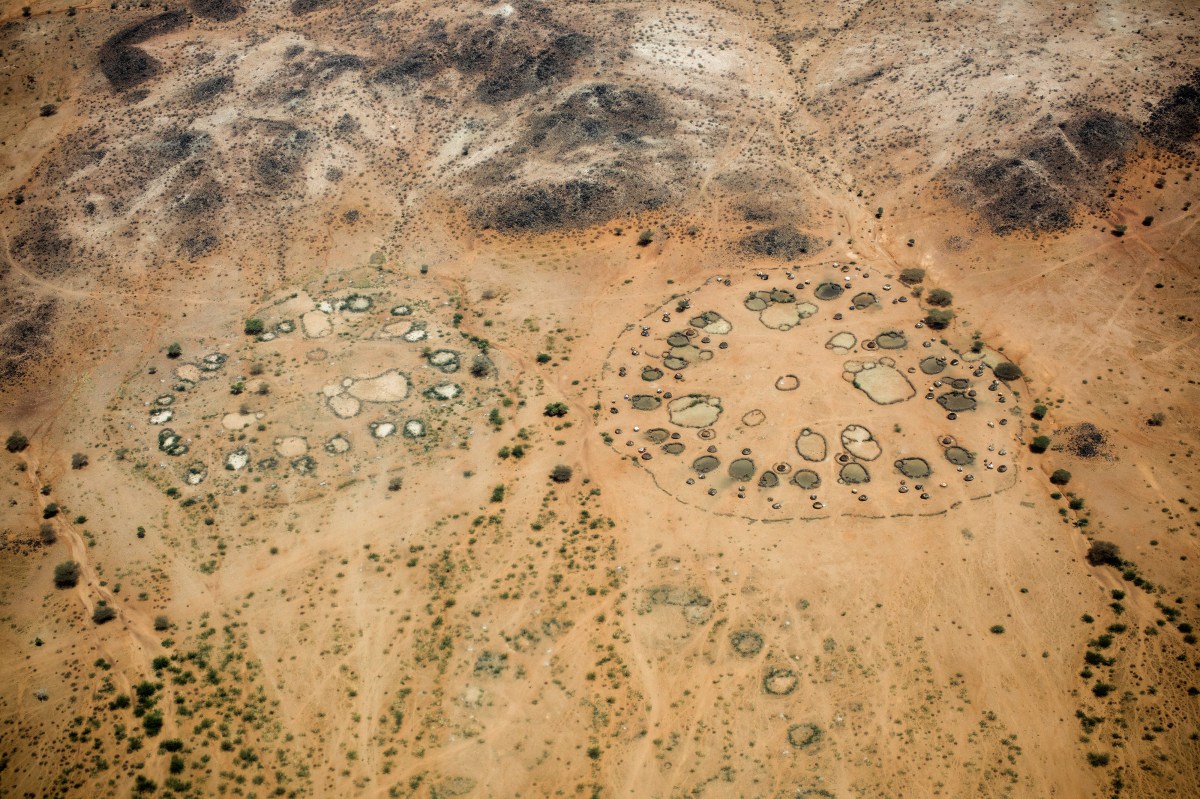
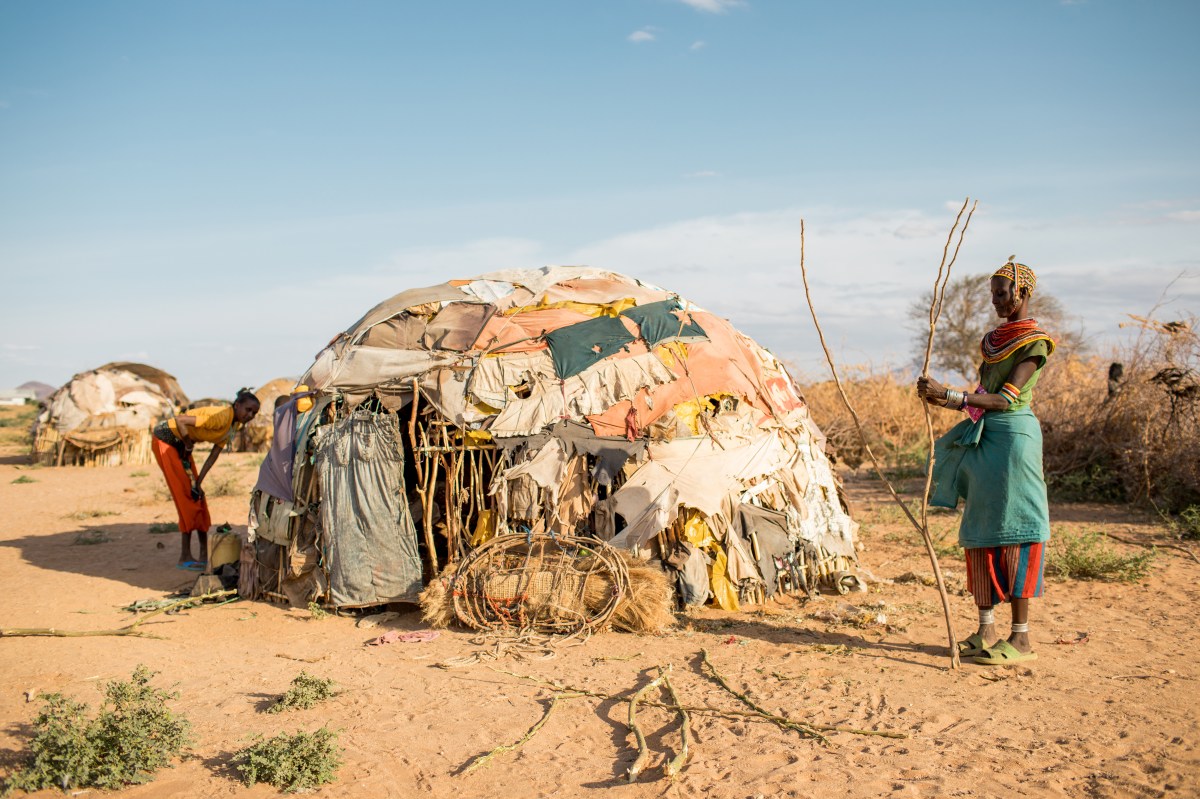
The Rendille come from the line of the Cushite people, whose traditions date back thousands of years and resemble certain Old Testament Jewish practices. They are nomadic pastoralists in arid northern Kenya, building circular villages that move frequently—sometimes just a few yards.
* * *
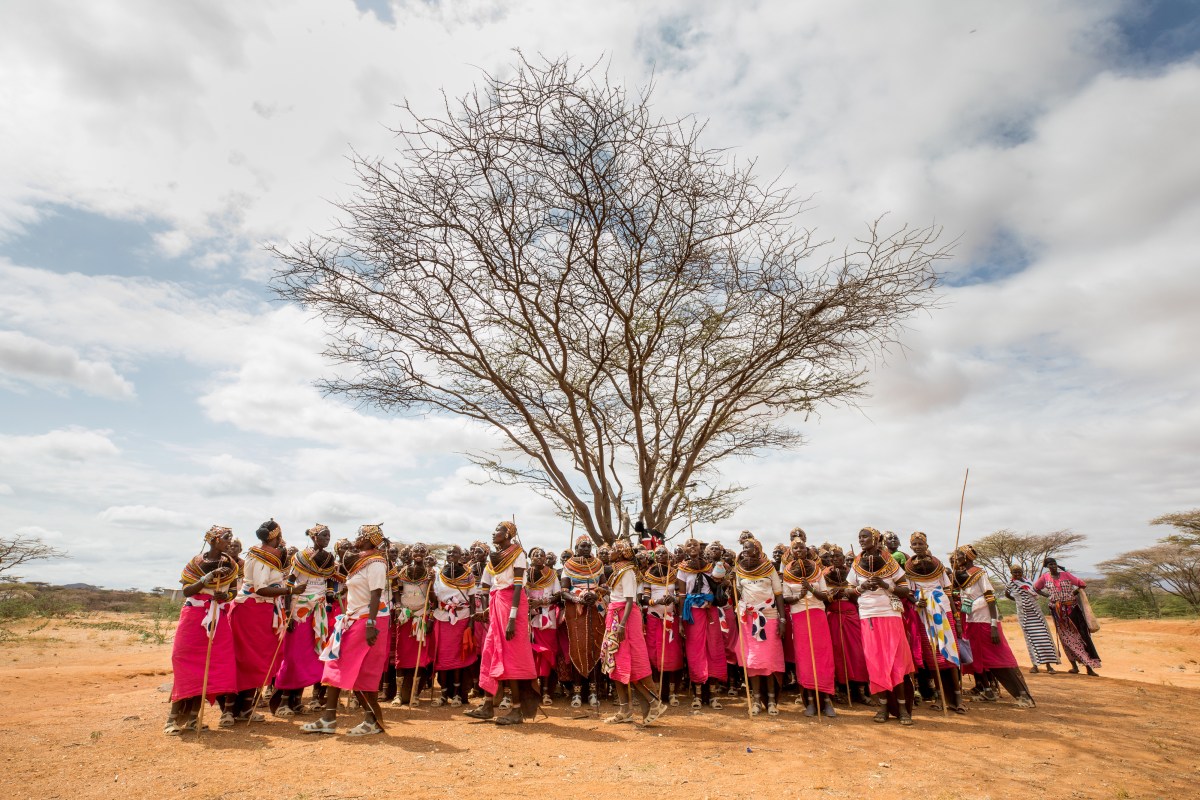
Rendille women are coming to know Jesus through a literacy program that teaches them to read and write through the use of Bible stories. Many take what they learn and travel to other villages to preach.
* * *
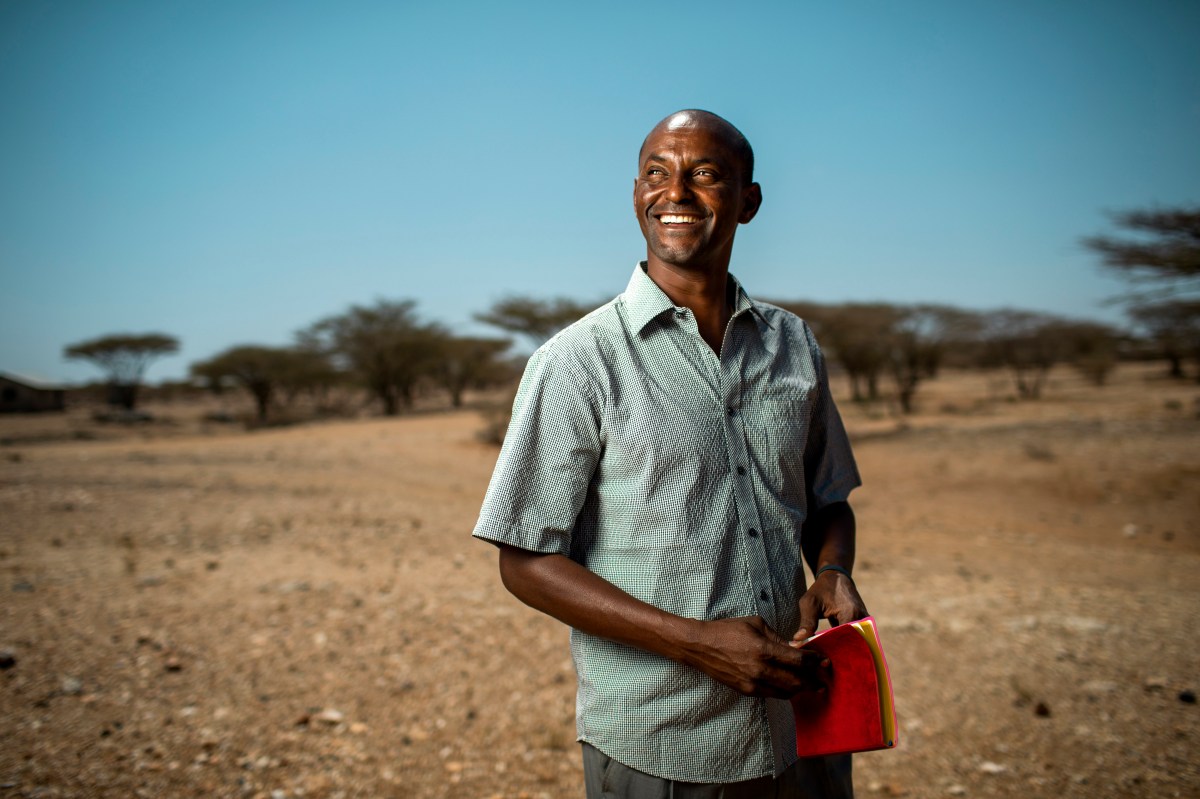
Pastor David Gargule was born and raised in the Rendille community. “The Lord called me back to my own people,” said Gargule, who runs a Christian school for Rendille youth. “I have passion for nomadic ministry. You can’t reach nomads in a modern setting. You have to go to them, be with them, stay with them. I’m a nomad and serving nomads.”
* * *
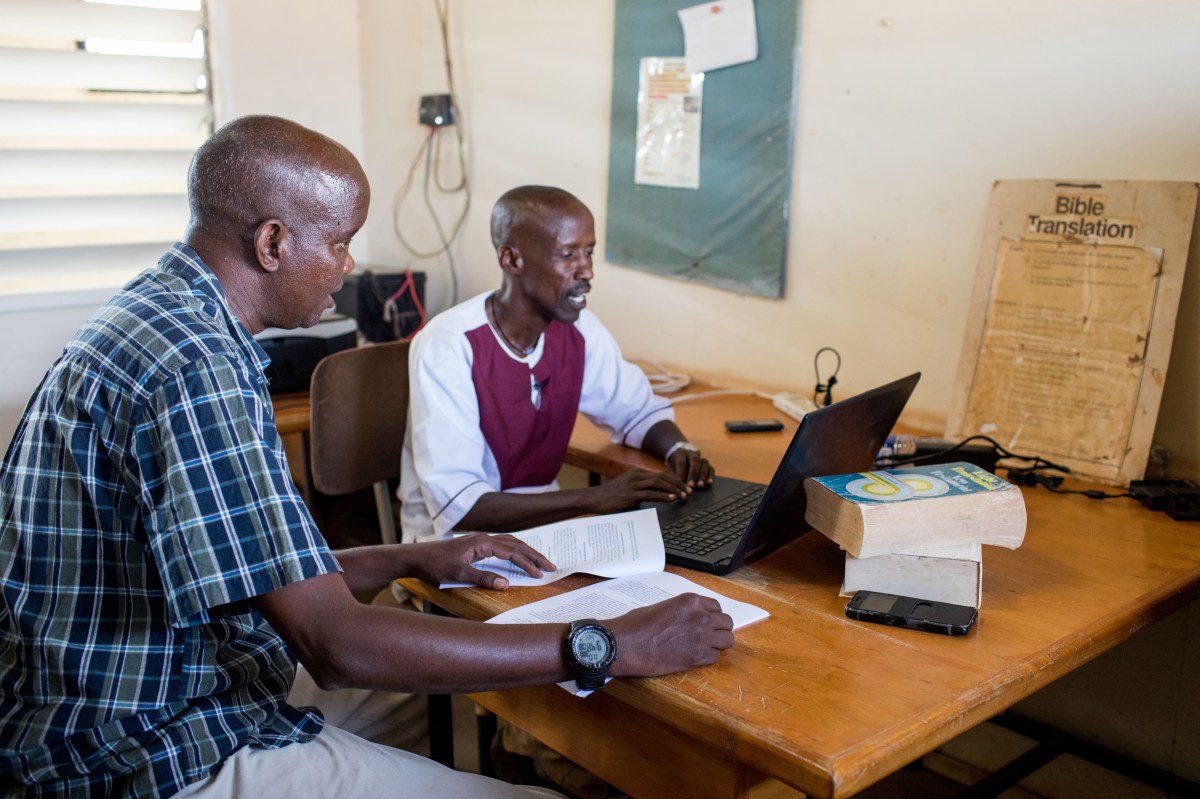
Laban Eysimkeele, left, and Joshua Galimogle spent countless hours translating Scripture for the Rendille people. They tested each verse with the community, then flew to Nairobi to connect to the internet and send the translations to consultants. “My hope is that my children will know the Lord through his Word,” Galimogle said.
* * *
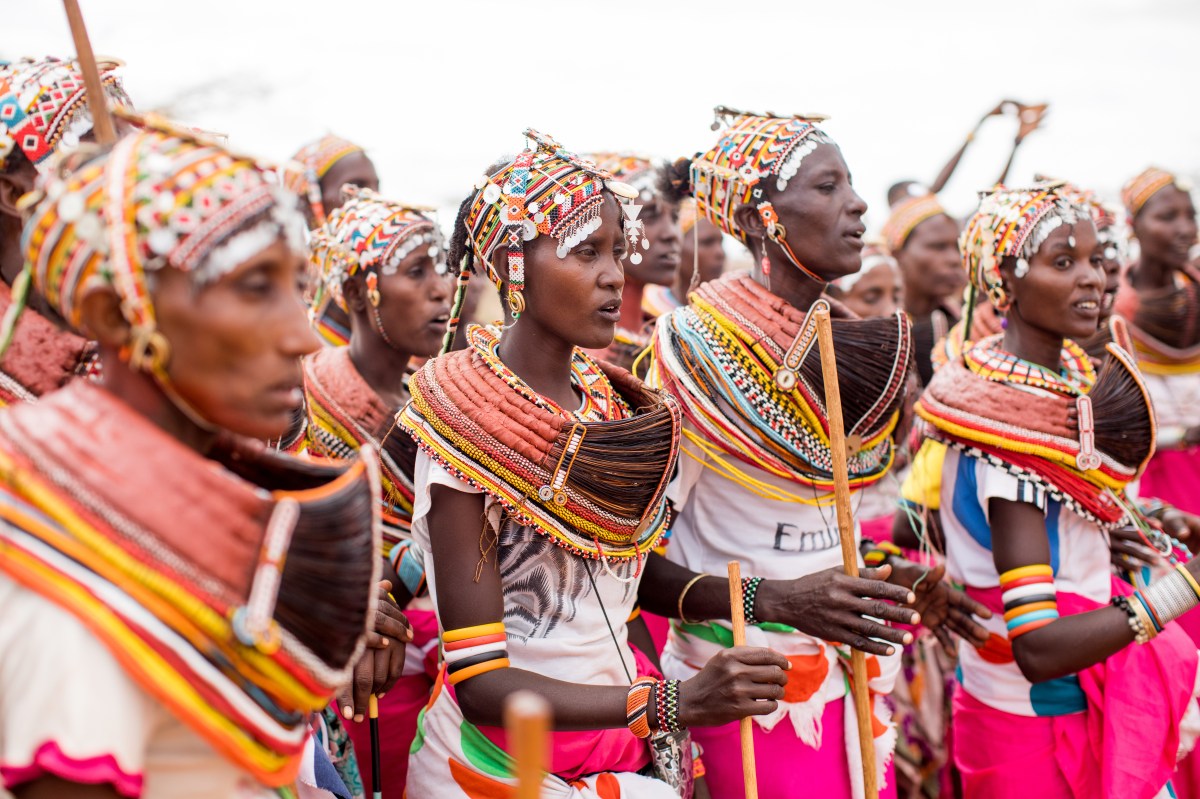
Rendille women sing praise songs they wrote for the day of the Bible dedication: “We give thanks to the Lord. The Word of God is like a pillar in our life. We give thanks to the Lord for this day for it is the first time we have the Bible in our own language.”
* * *
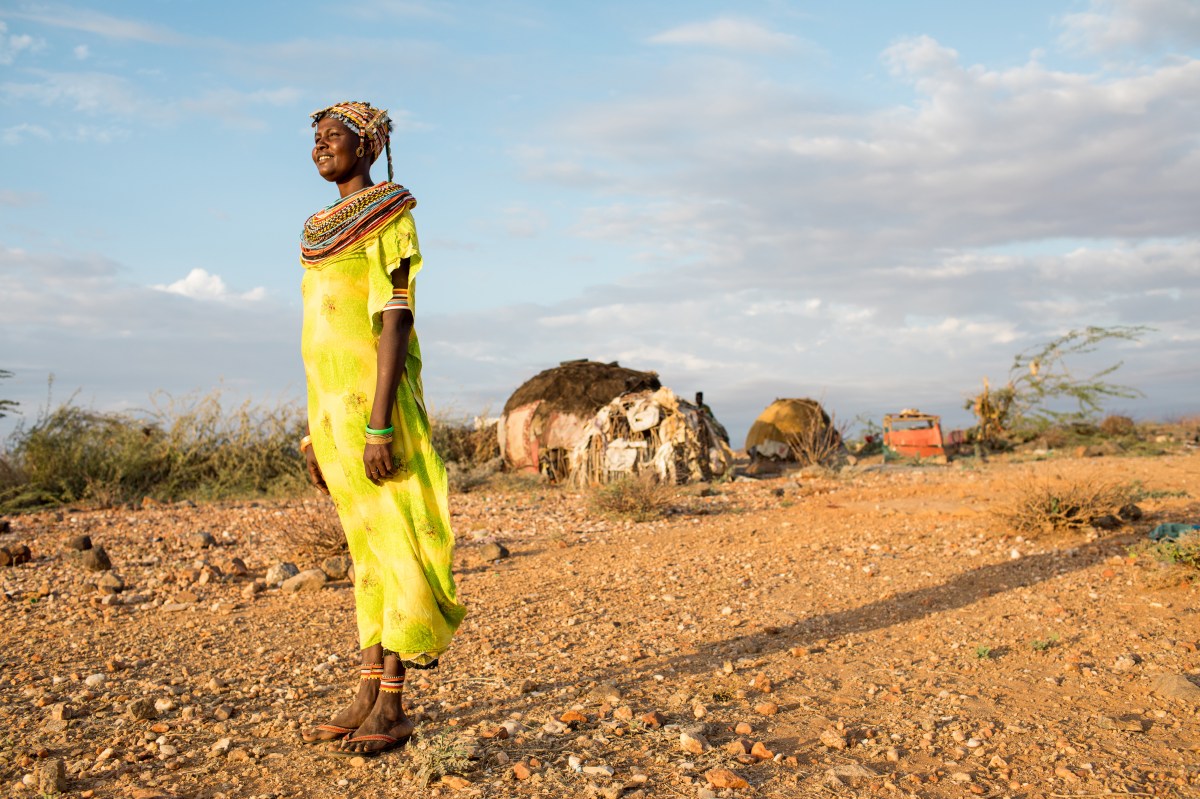
“I am very happy that the Bible is now in the Rendille language,” said Lucy, who stands outside her home in Northern Kenya. “Before the Bible, we still tried to teach the Word of God and many got saved, but now we’re hoping that many more will be saved.”
* * *
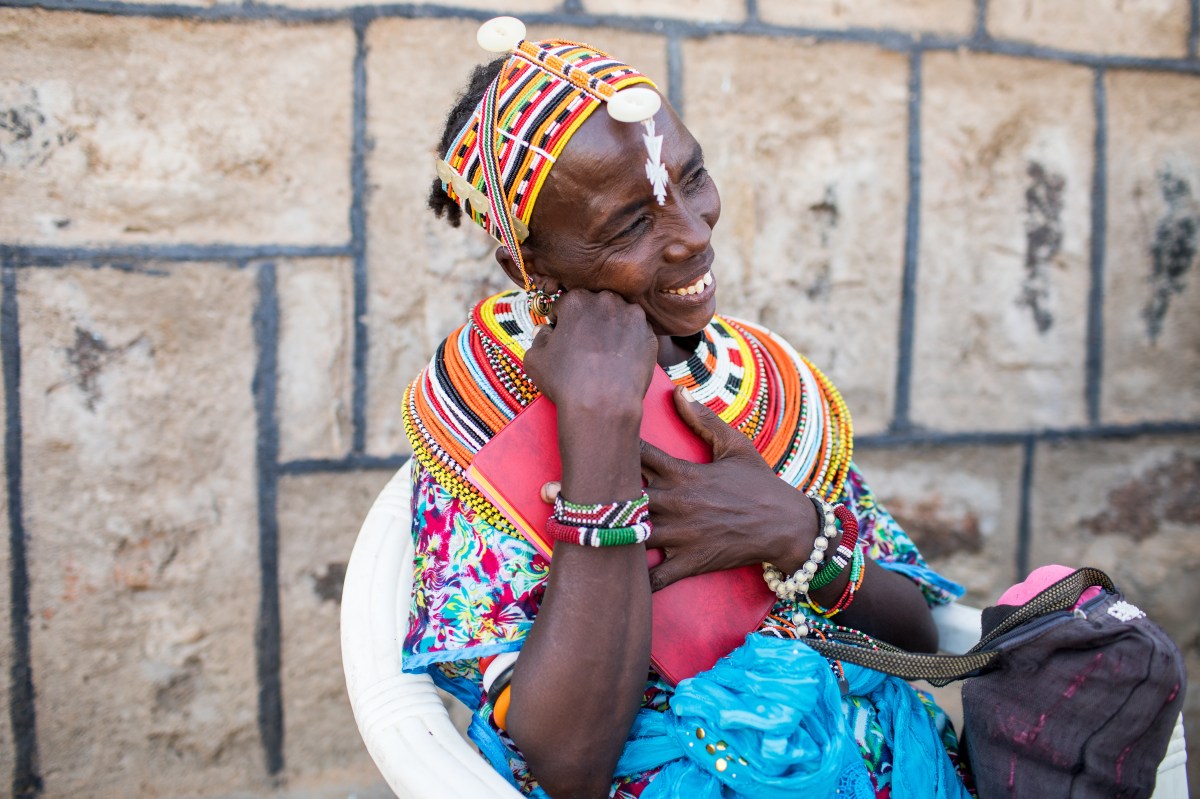
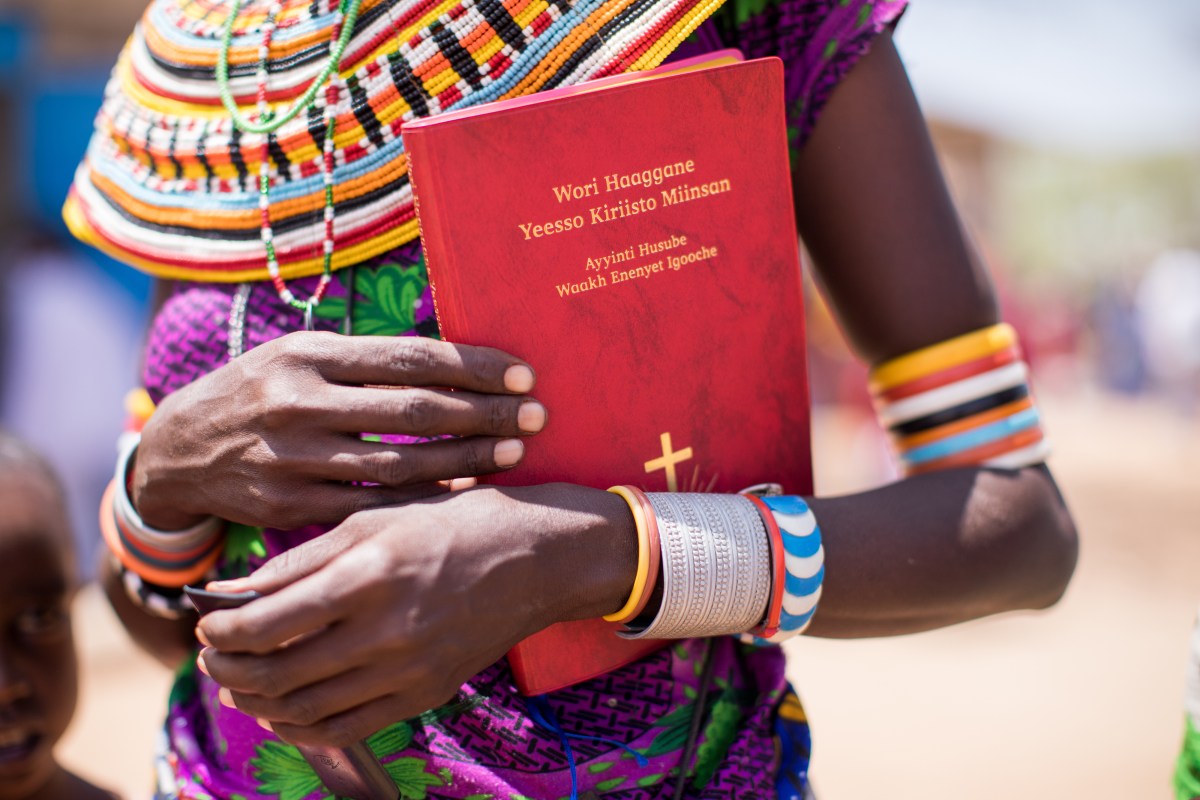
A woman carries her New Testament Bible in Rendille to church on Sunday.
Have something to say about this topic? Let us know here.

